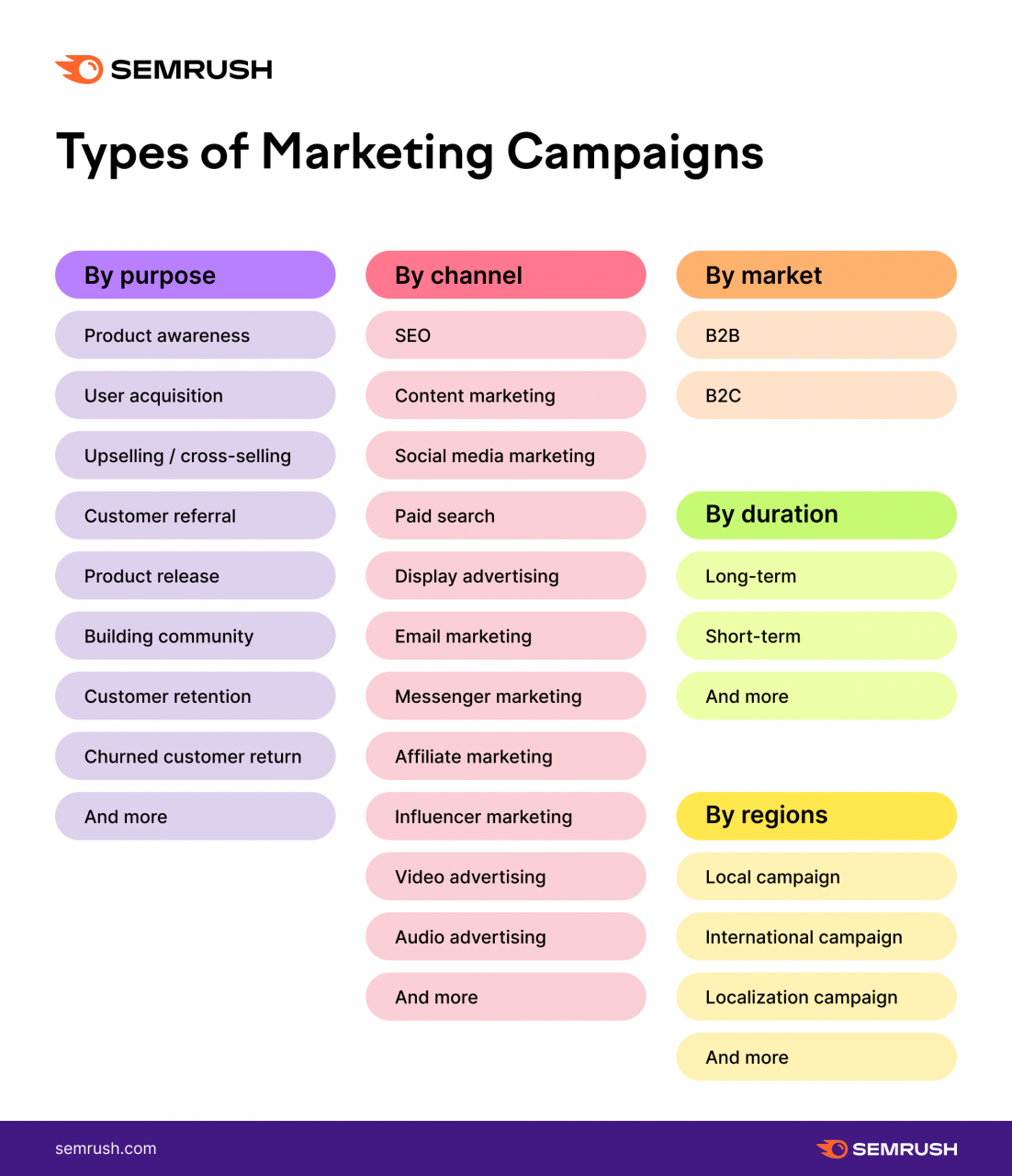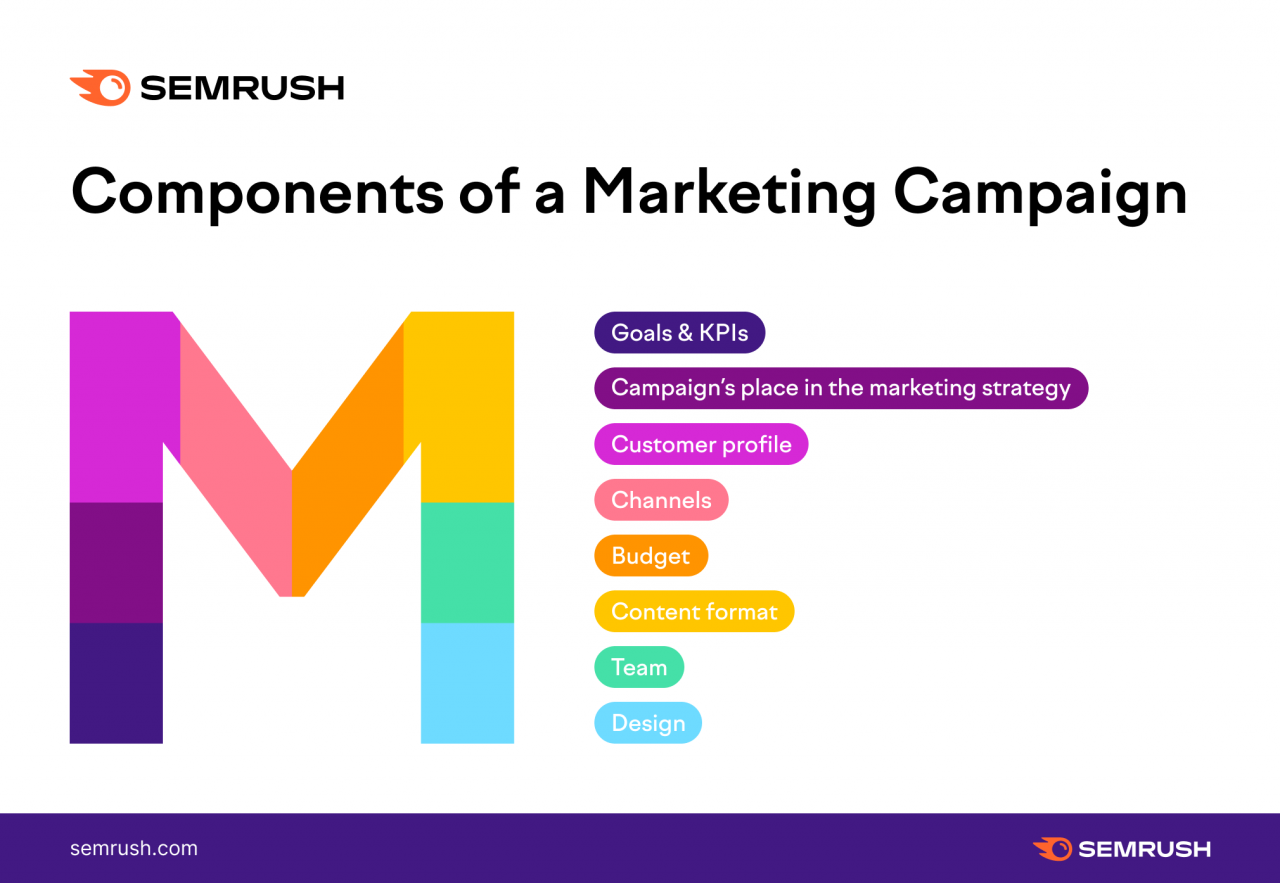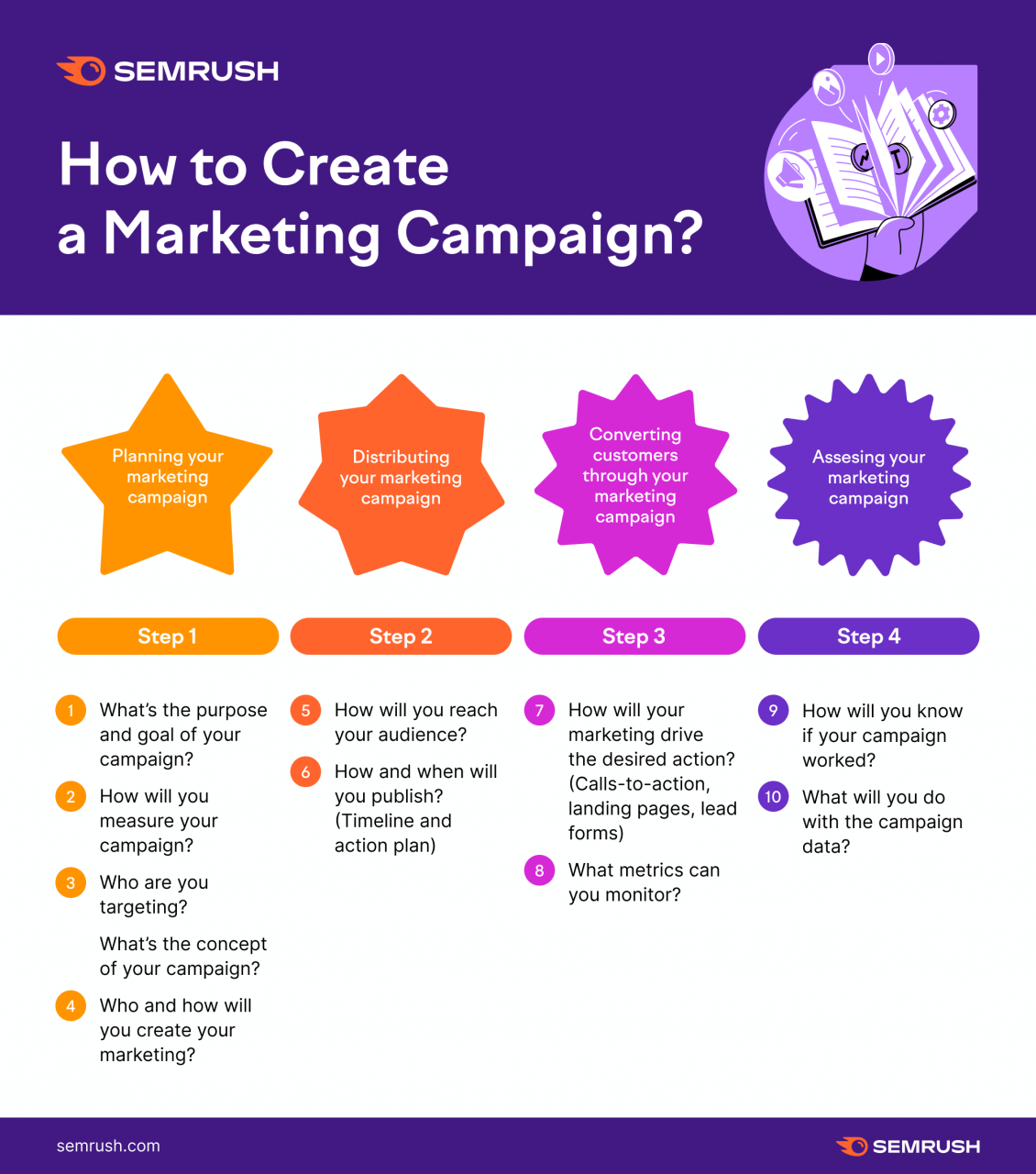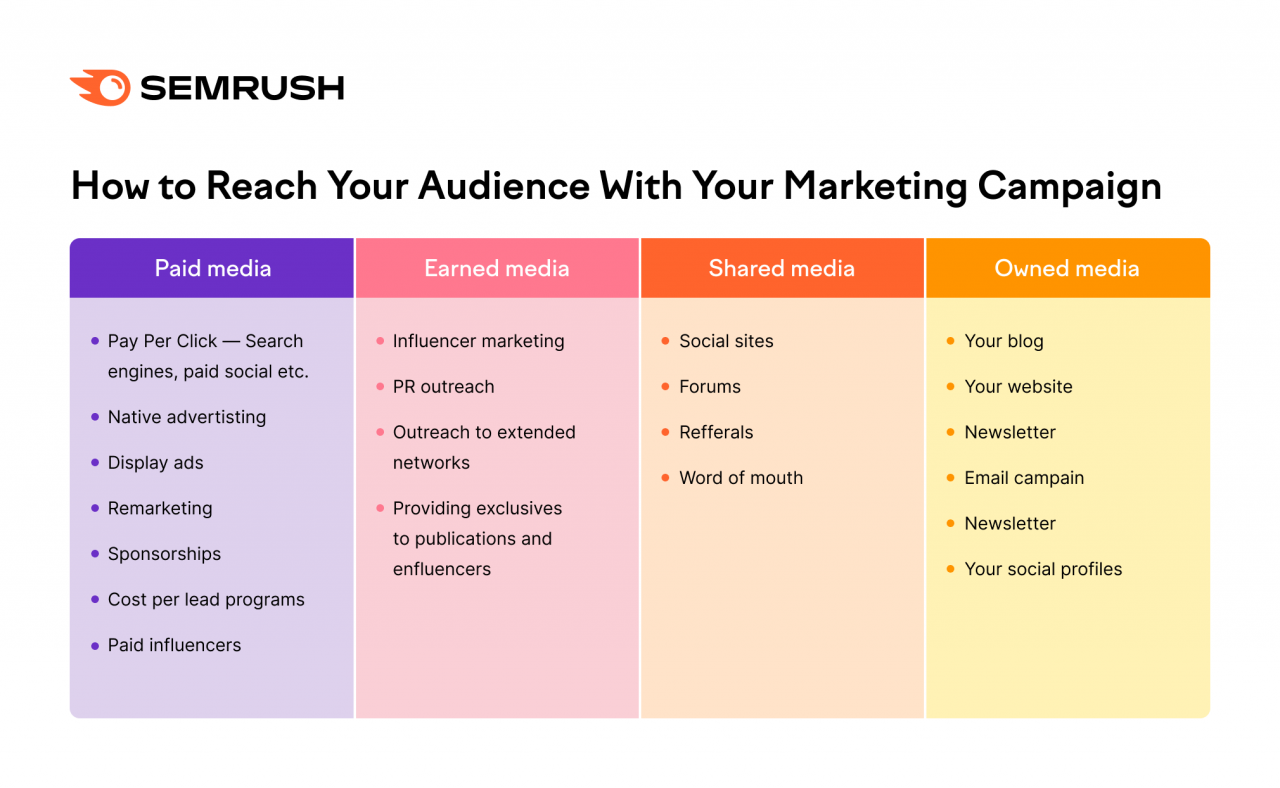A Quick Start Guide to Effective Marketing Campaigns by SemRush
Planning an online marketing campaign is very complex, but also an important factor that, if done well, can bring multiple benefits.There are numerous possibilities for choosing the appropriate marketing campaign. And each of them must be planned in detail, starting from finding a suitable niche, through writing quality content and creating graphic solutions, all the way to monitoring the results of the marketing campaign.
SemRush, one of the leading SEO marketing services, has provided a very detailed and high-quality guide on how to plan an online marketing campaign. Of course, each marketing campaign is a story on its own and you should carefully choose a marketing strategy that suits the business of the company.SemRush has provided a detailed guide that can be applied by any business activity....In the summer of 2020, LEGO® launched a marketing campaign for their new product: Braille Bricks by LEGO®.
Designed to help children who are blind or visually impaired learn the Braille system of reading and writing, Braille Bricks was launched in twenty countries over the next six months following a successful pilot program. This launch was driven by a strategic, well-coordinated marketing campaign that included: a dedicated website, video, press releases, media coverage/PR, social media, ads, webinars, and more.
In addition to developing an incredibly valuable and innovative new product, LEGO's global launch of Braille Bricks offers an insightful glimpse into just how many content assets, channels, and promotional strategies can go into executing a successful marketing campaign.
What Is a Marketing Campaign?
At its most basic, a marketing campaign is simply an approach marketers use to promote their company's products, services, or resources.
However, for a marketing campaign to have a fighting chance at being effective, that approach should start with a clear strategy and detailed plan.
Marketing Campaign: Strategy vs. Plan
Think of the strategy component of your marketing campaign as a destination you're wanting to reach. Before you can know how to get there you need to know where you're going. It can also help to know why you're wanting to get there and who'll join you in your journey.
Applying this to a marketing campaign, your strategy should clearly identify:
- Where you want to get to (objective)
- Why you want to get there (purpose)
- Who you want to connect with along the way (target audience)
- Who will help you get there (team)
- How much it'll cost to get there (budget)
- When you plan to get there (timeline)
- What success looks like (KPI)
If the strategy is akin to the destination, then the marketing campaign plan is your roadmap for getting there. It lays out how your strategy will be executed. Ideally, it should clearly identify:
- What needs to be done (tactics)
- How should it get done (activities/tasks)
- Who will do what (roles and responsibilities)
- When the activities and tasks need to be done (deadlines)
- How much to spend on what (expenditure of budget)
- How success will be tracked and measured (metrics)
Whether your marketing campaign is focused around a specific product, has a small budget and will only run for a month in a narrow geographic location, or is a large, global, multi-month initiative with a significant budget, the point is that the first few stages of your campaign should be focused on defining your strategy and plan.
Structuring Your Marketing Campaign Strategy
While traveling without a clear destination may work for a free-spirited wayfaring wanderer, in the world of marketing, that's an approach that risks wasting both time and money.
To help you ensure you're not meandering with your marketing campaign, take the time to consider — and answer — these questions:
What's Your Objective?
Why This Objective?
Who Do You Want to Connect with Along the Way?
Who will Help You Get There?
How Much will It Cost to Get There?
Preparing your Marketing Campaign Plan
Okay, now that you know where you're going with your marketing campaign, the next stage to focus on is your plan to get there.
What Needs to Be Done?To bring this campaign to fruition, what tactics will you take?
Answering this question can be one of the most challenging and time-consuming steps in this process as there can be many pieces, parts, people, processes, perspectives, paths, and priorities to consider. Some of these include:
- Distribution channels you plan to use. Owned? Earned? Paid? All of the above?
- Content types involved in the campaign. E.g. Blog posts, email, paid ads, video, infographics, webinars, press releases, testimonials, podcasts, etc.
- Messaging creation. What do you want to say and how do you want to say it? What do you want your calls-to-action to be?
- Conversion Steps. Aligned with messaging, where do you want to take your target audience after they engage with your content? What's the next step in their engagement journey?
- Design. Is there a theme to your campaign? What should the overall look and feel of the design be for all components of the campaign?
Campaign Planning:
- Marketing Calendar allows you to visually map out your marketing campaign's tactics and tasks, and share them with your team to ensure collaboration and transparency.
- Traffic Analytics can guide your KPIs and metrics based on competitive analysis.
- Market Explorer provides deep insight into target niches to better understand the audience you're trying to reach.
- Topic Research proposes ideas for your content and uncovers trending topics that people are searching for online.
Campaign Preparation and Implementation:
- SEO Content Template produces a content template for writers with recommended text length, readability score, semantically related keywords, potential backlink targets and more based on your seed keyword.
- SEO Writing Assistant allows you to check the SEO potential, readability, and originality of a piece of content in real-time.
- Keyword Magic Tool gives you access to an extended database with over 17 billion keywords.
- Display Advertising provides insight into your competitors' banners, sidebars, and text ads placed through Google Ads and published on the Google Display Network.
- Social Media Poster offers a simple, easy way to draft, schedule, and post content on Facebook (Business pages), LinkedIn, Instagram, Google My Business, Pinterest and Twitter.
Campaign Tracking and Analysis:
- Integrations that offer a variety of connections of Semrush with other tools to help obtain more precise data.
- My Reports tool makes it easy to integrate modules from dozens of Semrush tools, Google Analytics, Google Search Console, Google My Business, and screenshots and images to create professional reports of your marketing campaign performance.
Although a plethora of tools exist to help support the strategy and planning stages of a marketing campaign, there are no shortcuts to the approach that's required to make that campaign successful and effective. Leverage the tools, but trust in the process.
Complete text: Sem Rush
Written: VICTORIA LIAONENKA
When you subscribe to the blog, we will send you an e-mail when there are new updates on the site so you wouldn't miss them.






